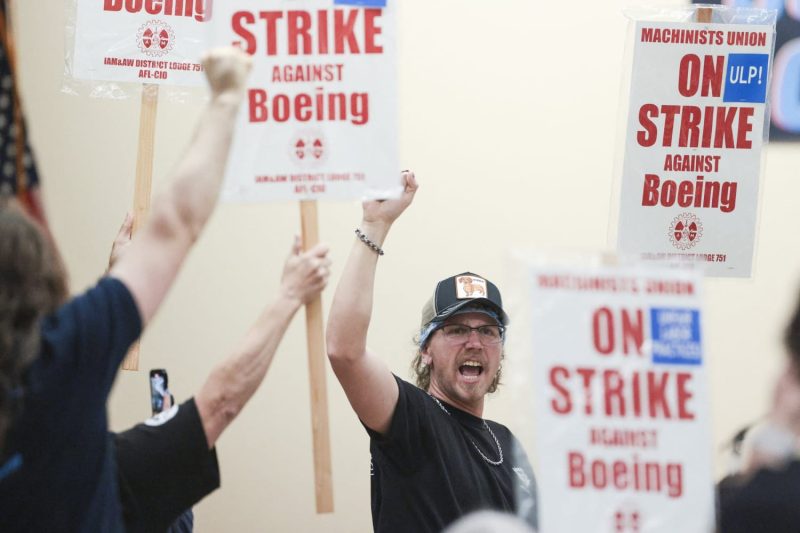
Boeing Factory Workers Unite in Strike Action After Rejecting Contract
In a surprising turn of events, Boeing factory workers have initiated a strike after overwhelmingly rejecting the proposed contract by the company. The decision to strike comes as a bold statement from the employees, reflecting their strong stance on the terms and conditions offered in the contract. This move has garnered attention not only within the Boeing community but also among industry analysts and stakeholders who are closely monitoring how the situation unfolds.
The workers’ resounding rejection of the proposed contract highlights the underlying issues and dissatisfaction that have been brewing within the workforce. The decision to strike is a manifestation of the employees’ collective demand for better working conditions, pay, and benefits. It underscores the significance of fair labor practices and equitable treatment of workers in today’s corporate landscape.
One of the key points of contention that led to the rejection of the contract is likely related to compensation. As the backbone of Boeing’s operations, the factory workers play a crucial role in the company’s success and profitability. Therefore, it is understandable that they would seek appropriate remuneration that reflects the value of their contributions. A fair and competitive wage package is not only a matter of financial reward but also a recognition of their dedication and hard work.
Another crucial aspect that may have contributed to the rejection of the contract is the issue of working conditions. Factory workers often face challenging and demanding environments that require adherence to strict safety standards and protocols. Ensuring a safe and conducive workplace is essential for the well-being and morale of the employees. Any shortcomings in this regard could understandably lead to dissatisfaction and prompt actions such as strikes.
Additionally, the rejection of the contract could be a result of broader concerns related to job security and career growth opportunities. In an ever-evolving industry landscape, employees are increasingly looking for assurances regarding their long-term prospects within the company. Clear pathways for career advancement, skill development, and job stability are vital components of a satisfactory employment agreement.
The decision to strike is a bold step taken by the Boeing factory workers to voice their grievances and push for a resolution that addresses their concerns. It reflects their solidarity and determination to stand up for their rights and demand fair treatment from the company. The outcome of this strike will not only impact the immediate negotiations between the workers and the management but also set a precedent for labor relations in the aerospace industry.
As the strike unfolds, it is essential for both parties to engage in constructive dialogue and negotiations to reach a mutually beneficial agreement. Finding common ground and addressing the core issues raised by the employees will be crucial in resolving the conflict and restoring trust and harmony within the workforce. Ultimately, a successful resolution will not only benefit the Boeing factory workers but also contribute to a more sustainable and equitable working environment for all stakeholders involved.
